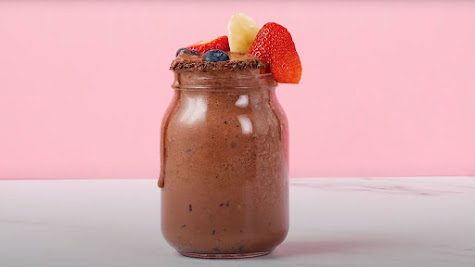Foods which will boost immunity and help to stay healthy in COVID-19
Besides regular exercise yoga pranayam, one can consume food that can help our body to be immune and become less susceptible to falling sick.
The second wave of COVID-19 has left us with no choice but to watch our steps and not tread on waters that can bring down our immunity at any cost. It has become essential to provide our body with food that can enhance our immune system to fight against the pathogens if they happen to enter the body.
Besides regular exercise and avoiding consumption of alcohol and tobacco, one can consume food that can help our body become less susceptible to falling sick.
Some List of Super Foods:-
Ginger
The scientific name for ginger is Zingiber officinale. Widely used in Indian kitchens to alleviate upset stomach, ginger has properties to relieve muscular and joint pains. It is an excellent remedy for the common cold and flu. One can consume it in a ginger-tulsi decoction, with black pepper and honey. It is known to soothe menstrual cramps similar to Advil (ibuprofen).
Garlic
The scientific name for garlic is Allium sativum. Apart from adding flavour to a number of dishes, garlic is classified as an immune booster. Rubbing garlic oil is known to soothe muscular and joint pains. It is also to keep in mind that it should be raw or cooked garlic and not supplements.
Chia seeds
The scientific name for Chia is Salvia hispanica. They were a staple in the diet of Aztecs and Mayan. Chia in Myan means strength. They are rich in protein, fibre and omega-3s which help in reducing the risk of heart diseases. The calcium content in them is at an impressive 18% which is excellent for good bone health. It can be soaked in milk and oats overnight to consume as a breakfast or could be sprinkled over salads and smoothies.
Cinnamon
The scientific name for cinnamon is Cinnamomum Verum. It has long been used as a remedy for heartburn, indigestion, and nausea. It helps in lung congestion issues by clearing up mucus and helps in proper air circulation. It keeps the blood glucose level in check and is beneficial for people with diabetes mellitus.
Most people turn straight to vitamin C after they’ve caught a cold. That’s because it helps build up your immune system. Vitamin C is thought to increase the production of white blood cells, which are key to fighting infections.
Almost all citrus fruits are high in vitamin C. With such a variety to choose from, it’s easy to add a squeeze of this vitamin to any meal.
Popular citrus fruits include:
- Grapefruit
- Oranges
- Lemons
Because our body doesn’t produce or store it, you need daily vitamin C for continued health. The
- 75 mg for women
- 90 mg for men
If you opt for supplements, avoid taking more than 2,000 milligrams (mg) a day.
Also keep in mind that while vitamin C might help you recover from a cold quicker, there’s no evidence yet that it’s effective against the new coronavirus, SARS-CoV-2.
Spinach
Spinach made our list not just because it’s rich in vitamin C — it’s also packed with numerous antioxidants and beta carotene, which may both increase the infection-fighting ability of our immune systems.
Similar to broccoli, spinach is healthiest when it’s cooked as little as possible so that it retains its nutrients. However, light cooking makes it easier to absorb the vitamin A and allows other nutrients to be released from oxalic acid, an antinutrient.
Yogurt
Look for yogurts that have the phrase “live and active cultures” printed on the label, like Greek yogurt. These cultures may stimulate your immune system to help fight diseases.
Try to get plain yogurts rather than the kind that are flavored and loaded with sugar. You can sweeten plain yogurt yourself with healthy fruits and a drizzle of honey instead.
Yogurt can also be a great source of vitamin D, so try to select brands fortified with this vitamin. Vitamin D helps regulate the immune system and is thought to boost our body’s natural defenses against diseases.
Almonds
When it comes to preventing and fighting off colds, vitamin E tends to take a backseat to vitamin C. However, this powerful antioxidant is key to a healthy immune system.
It’s a fat-soluble vitamin, which means it requires the presence of fat to be absorbed properly. Nuts, such as almonds, are packed with the vitamin and also have healthy fats.
Adults only need about
Turmeric
You may know turmeric as a key ingredient in many curries. This bright yellow, bitter spice has also been used for years as an anti-inflammatory in treating both osteoarthritis and rheumatoid arthritis.
Papaya
Papaya is another fruit loaded with vitamin C. You can find
Papayas have decent amounts of potassium, magnesium, and folate, all of which are beneficial to your overall health.
Kiwi
Like papayas, kiwis are naturally full of a ton of essential nutrients, including folate, potassium, vitamin K, and vitamin C.
Vitamin C boosts the white blood cells to fight infection, while kiwi’s other nutrients keep the rest of your body functioning properly.
Poultry
When you’re sick and you reach for chicken soup, it’s more than just the placebo effect that makes you feel better. The soup may help lower inflammation, which could improve symptoms of a cold.
Poultry, such as chicken and turkey, is high in vitamin B-6. About 3 ounces of light turkey or chicken meat contains
Vitamin B-6 is an important player in many of the chemical reactions that happen in the body. It’s also vital to the formation of new and healthy red blood cells.






















Very useful
ReplyDeleteThank you.
ReplyDeleteWow
ReplyDeleteThank you. Keep Loving and Supporting!
Delete